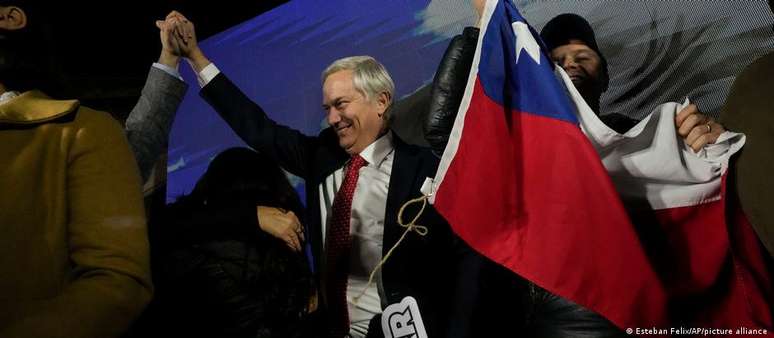Lula’s government should closely monitor political changes in Chile, where the far right has recently gained ground. Much of what happened there is in danger of repeating itself in Brazil: Ten days ago, Chilean President Gabriel Boric lost the Constitutional Council election by a large margin. After the defeat, he urged the victor, his right-wing political opponent José Antonio Kast, not to make the same mistakes that he, Boric and the left-wing alliance had made.
In the first drafting of a constitutional reform last year, the left had the majority in the constituent assembly. The constituents elaborated a radical document, which considered only one side. By September, this version was clearly rejected by the Chileans.
Since then, the political trend in Chile has shifted even further to the right: in elections for the Constitutional Council, voters overwhelmingly opted for right-wing and conservative parties.
Kast’s Republican Party won a landslide victory. Together with the traditional right, Kast has a qualified majority in the Council. Boric’s leftist alliance has done so badly that he doesn’t even veto it.
And so the paradox arose that a right-wing party that never wanted a new constitution will control the drafting of the new Magna Carta. An initial release should be ready in November.
Although there is no talk of constitutional reform in Brazil, the government of President Luiz Inacio Lula da Silva should pay close attention to the political changes in Chile. Because much of what happened there could be repeated in Brazil.
In Chile, too, Boric’s victory was narrow in December 2021, although not as much as Lula’s a year later. But in both countries, large parts of the population voted strongly on the conservative and right-wing spectrum.
Even so, Boric began his term doing politics primarily for his own constituents. He supported constitutional reform and linked his political destiny to the new constitution.
In doing so, the government has downplayed issues that, meanwhile, are far more important than the new laws to most Chileans. They have other existential problems.
The situation is not much different in Brazil: Lula has invested his political capital mainly to undo what his predecessor, Jair Bolsonaro, had achieved in laws and ordinances. Lula does politics for his left-wing voters and for his party, and in this he forgets that many elected him only to prevent Bolsonaro from continuing in power.
It is understandable and necessary, of course, that after Bolsonaro’s policy for the environment, indigenous peoples and the Amazon, Lula rebuilds state bodies and tries to regain control.
What is incomprehensible, for many who elected him, is that he wants to backtrack on the law on education and health, on transparency rules in state-owned companies or on the reduction of government influence over state-owned companies – in the interest of his party, but not the majority of Brazilians.
There is the risk that Lula, encountering greater resistance, will devote himself more and more to a policy aimed at his Brazilian minority. This would give a huge boost to the Brazilian right, new or old.
Knowing the result in Chile, Boric said it’s not the time for a rematch, but to put Chile first. The same could be said for Lula.
_________________________
For more than 25 years, journalist Alexander Busch has been a South American correspondent for the Handelsblatt publishing group (which publishes the weekly Wirtschaftswoche and the daily Handelsblatt) and for the daily Neue Zürcher Zeitung. Born in 1963, he grew up in Venezuela and studied economics and politics in Colonia and Buenos Aires. Busch lives and works in São Paulo and Salvador. He is the author of several books on Brazil.
Text reflects the author’s opinion, not necessarily DW’s.
Source: Terra
Rose James is a Gossipify movie and series reviewer known for her in-depth analysis and unique perspective on the latest releases. With a background in film studies, she provides engaging and informative reviews, and keeps readers up to date with industry trends and emerging talents.







